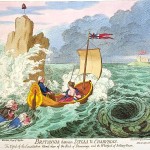While a significant portion of the Unites States electorate, intoxicated with a heady brew of Lockean liberalism, decries “socialism in America”, many have suggested that in the possessive individualism underlying this rhetoric lies the root of our social narcissism and the ultimate failure of our society. MacPherson wrote 40 years ago that,
“…the difficulties of modern liberal-democratic theory lie deeper than had been thought, that the original seventeenth-century individualism contained the central difficulty, which lay in its possessive quality. Its possessive quality is found in its conception of the individual as essentially the proprietor of his own person or capacities, owing nothing to to society for them. The individual was seen neither as a moral whole, nor as part of a larger social whole, but as an owner of himself. The relation of ownership, having become for more and more men the critically important relation determining their actual freedom and actual prospect of realizing their full potentialities, was read back into the nature of the individual. The individual, it was thought, is free inasmuch as he is proprietor of his person and capacities. The human essence is freedom from dependence on the wills of others, and freedom is a function of possession. Society consists of relations of exchange between proprietors. Political society becomes a calculated device for the protection of this property and or the maintenance o an orderly relation of exchange.” C. B. MacPherson. The political theory of possessive individualism: Hobbes to Locke. Oxford University Press, 1969
MacPherson goes on to note that we seem to obtain no satisfaction from the having, but instead are firmly fixed on the getting. Of course, those that have more find it easy to get more, and that invariably means that those that have less always get less.
Perhaps it was Hobbes who truly wrote Golding’s Lord of the Flies, painting a truly ruthless picture of mankind in his natural state, Ecce Homo! I was taken with the rather human mechanics of the following observation
Subordinate birds have to look for food whenever and wherever they can find it, and carry fat on their bodies to hedge against unpredictable rations. Dominant birds, which can push subordinates off food, can choose when they eat and so lessen their odds of being eaten themselves.
From Convention to Van Buren, Jefferson’s party railed against a Hobbesian solution. Yet under Madison they murdered Federalists in Baltimore, under Jackson they murdered thousands of Indians, and they finally forced this country into its greatest domestic convulsion, resulting in the virtual destruction of the South and the termination of that curious institution upon which their agrarian utopia was based.
Martin Luther King, though he dreamed wondrous dreams, understood perhaps as well as any Nobel Laureate economist (for example, Joseph Stiglitz) that the root of inequality was economic injustice. While King’s Dream continues to challenge and seems resonant with most Americans, there is a dissonance of alarming degree between the Lockean liberalism which is argued to anchor this country, and the socialism which we see in King’s oration. In fact, you may well find that Dr. King has more in common with that “villain”, Niccolo Machiavelli, than with Jefferson’s “Saint”, Sidney Algernon.
Machiavelli has been disparaged for centuries. Frederick the Great wrote,
Machiavel’s The Prince is to ethics what the work of Spinoza is to faith. Spinoza sapped the fundamentals of faith, and drained the spirit of religion; Machiavel corrupted policy, and undertook to destroy the precepts of healthy morals: the errors of the first were only errors of speculation, but those of the other had a practical thrust. The theologians have sounded the alarm bell and battled against Spinoza, refuting his work in form and defending the Divinity against his attack, while Machiavel has only been badgered by moralists. In spite of them, and in spite of its pernicious morals, The Prince is very much on the pulpit of policy, even in our day.
Frederick takes on Machiavelli AND Spinoza (leaving us to wonder why he failed to indict Hobbes) for their attacks on the virtue that he seems to believe leaps, as did Athena, from the godhead. Frederick’s argument is based on the superstition inherent in the supernatural, while his targets labor in what Hobbes called the state of nature, the real world. A place called Wall Street.
Madison’s Constitution is very much of that real world. Machiavelli would be very comfortable with Connelly’s view of Madison and vice versa. In fact Machiavelli argued,
I say therefore that all the (previously) mentioned forms are inferior because of the brevity of the existence of those three that are good, and of the malignity of those three that are bad. So that those who make laws prudently having recognized the defects of each, (and) avoiding every one of these forms by itself alone, they selected one (form) that should partake of all, they judging it to be more firm and stable, because when there is in the same City (government) a Principality, an Aristocracy, and a Popular Government (Democracy), one watches the other.
Machiavelli is no idealistic and impractical Jefferson, howling at the moon while Madison cleans up the mess, and Madison, complaining himself centuries after the publication of The Discourses, writes in Federalist #10,
Complaints are everywhere heard from our most considerate and virtuous citizens, equally the friends of public and private faith, and of public and personal liberty, that our governments are too unstable, that the public good is disregarded in the conflicts of rival parties, and that measures are too often decided, not according to the rules of justice and the rights of the minor party, but by the superior force of an interested and overbearing majority. However anxiously we may wish that these complaints had no foundation, the evidence, of known facts will not permit us to deny that they are in some degree true.
Neither is Machiavelli some foolish aristocrat like The Mandragola‘s Nicia, ensnared in what detractors might claim is a Ligurio’s web of deceit. The fact of the matter is that Machiavelli’s conceit ends with what might be considered economic justice for all. In a society where this is a scarcity, each (as the Stones, writing in the same year as MacPherson, might put it) might not get what they want, but if they try real hard, will get what they need.
We have been awash in Sidney Algernon’s small “r” republican Saints and their moralizing Reformationist brethren who have bequeathed to us not the generous philosophy of social justice Jefferson ascribed to Jesus to which he claimed to subscribe, but a grasping self-involvement where the three operative words are all too familiar to the parent of any two year old: me, mine, and more.
But Machiavelli sets the same table as Teddy Roosevelt, though The Prince may be seen as a manual for the basest policies and Square Deal the acme of American values. Unlike the Mad Hatter’s table, there are seats for all here and arm in arm with Teddy and Niccolo, we come full circle to King. Yes, Dr. King may have been troubled by much of Marx’s message regarding the ill effects of religion, but in the real world, we see man’s religious institutions arguing economic injustice, while we see Marx arguing that workers should own the means of their production.
As Alice suggested, “I know who I was when I got up this morning, but I think I must have been changed several times since then.” Guess Who’s Coming to Dinner, released in 1967, is a graphic reminder of the importance of making room at the table, and that if we purport to make room at the table, then we had best be prepared to welcome and feed all comers.



